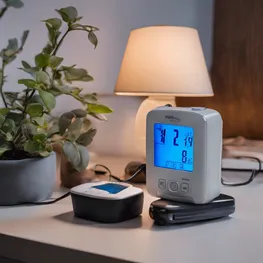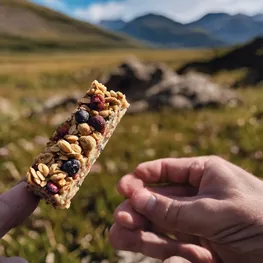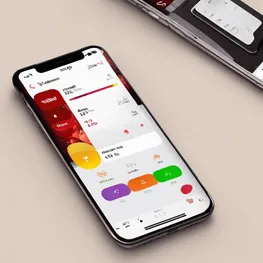Table of contents
- Why Managing Blood Sugar is Essential for Business Travelers
- 10 Essential Tips for Maintaining a Balanced Blood Sugar through Your Diet
- Unlocking the Secrets of Blood Sugar Control through Lifestyle Choices
- Proven Methods for Keeping Blood Sugar in Check on the Go
- Delicious and Blood Sugar-Friendly Recipes for Traveling
Business travel can disrupt our usual routines and make it challenging to maintain healthy habits, especially when it comes to managing blood sugar levels. Fluctuations in eating schedules, lack of access to nutritious food options, and increased stress levels can all impact blood sugar control. In this article, we will explore effective strategies to help individuals with diabetes or pre-diabetes balance their blood sugar while on the road for business trips. These tips will provide practical solutions to ensure optimal health and well-being during travel.
Why Managing Blood Sugar is Essential for Business Travelers
Uncontrolled blood sugar levels can have a significant impact on energy, focus, and productivity during business travel. When blood sugar levels are too high or too low, individuals may experience fatigue, difficulty concentrating, and decreased alertness. This can make it challenging to stay focused during meetings, handle important tasks, and make sound decisions. Additionally, unstable blood sugar levels can lead to mood swings and irritability, affecting interpersonal relationships with colleagues and clients. Managing blood sugar through balanced meals, regular physical activity, and proper medication is essential for business travelers to maintain optimal energy, mental clarity, and productivity on the go.
10 Essential Tips for Maintaining a Balanced Blood Sugar through Your Diet
Maintaining a balanced blood sugar while on the road is crucial for individuals with diabetes. Here are some practical tips for choosing blood sugar-friendly meals and snacks:
- Plan ahead: Before setting off on a journey, make a plan for your meals and snacks. This will help prevent impulsive food choices and ensure you have blood sugar-friendly options.
- Fill up on fiber: Include fiber-rich foods such as fruits, vegetables, whole grains, and legumes in your meals. Fiber slows down digestion and helps stabilize blood sugar levels.
- Choose lean proteins: Opt for lean sources of protein like skinless poultry, fish, tofu, or beans. Protein promotes satiety and slows down the release of glucose into the bloodstream.
- Control portion sizes: Be mindful of portion sizes to avoid consuming excessive carbohydrates. Use tools like measuring cups or visual references to estimate appropriate portion sizes.
- Avoid sugary beverages: Sugary drinks can cause a rapid spike in blood sugar levels. Opt for unsweetened beverages like water, herbal tea, or sugar-free options.
- Snack smartly: Carry blood sugar-friendly snacks like nuts, seeds, low-sugar protein bars, or cut-up vegetables with you. These snacks provide a quick source of energy without causing blood sugar imbalances.
- Read food labels: Familiarize yourself with food labels to identify hidden sugars and choose products with lower carbohydrate content. Look for terms like fructose, sucrose, or corn syrup in the ingredients list.
- Stay hydrated: Dehydration can affect blood sugar levels. Drink water regularly throughout the day to stay hydrated and help maintain stable blood sugar.
- Enjoy balanced meals: Aim for balanced meals that include a combination of carbohydrates, proteins, and healthy fats. This helps slow down digestion and prevents rapid blood sugar fluctuations.
- Seek professional advice: Consult a registered dietitian or diabetes educator for personalized guidance on managing your blood sugar while traveling.
Unlocking the Secrets of Blood Sugar Control through Lifestyle Choices
In our quest to unlock the secrets of blood sugar control through lifestyle choices, it is imperative to highlight the importance of physical activity and stress management. These two factors play a significant role in maintaining stable blood sugar levels.
- Physical activity has a direct impact on blood sugar levels as it helps muscles utilize glucose for energy. Engaging in regular exercise not only improves insulin sensitivity but also helps to lower blood sugar levels.
- Stress management is crucial as stress hormones, such as cortisol, can cause an increase in blood sugar levels. Chronic stress can lead to insulin resistance, making it challenging for the body to regulate blood sugar effectively.
- Regular physical activity promotes weight management and overall health, both of which contribute to stable blood sugar levels. Combining aerobic exercises with strength training can have a positive impact on blood sugar control.
- In addition to the direct benefits, physical activity and stress management can also indirectly influence blood sugar levels by promoting better sleep quality, improving mood, and reducing the risk of developing other chronic conditions like heart disease and obesity.
- It is important to adopt a holistic approach to blood sugar control, encompassing regular physical activity and effective stress management techniques. This can involve engaging in activities like walking, jogging, cycling, yoga, or meditation.
- Consulting with healthcare professionals and creating personalized exercise and stress management plans can help individuals achieve and maintain stable blood sugar levels, leading to better overall health and a reduced risk of complications related to diabetes.
Proven Methods for Keeping Blood Sugar in Check on the Go
Managing blood sugar during business trips can be challenging, but healthcare professionals offer valuable tips. These include carrying snacks, avoiding high-carb meals, staying hydrated, exercising regularly, and monitoring blood sugar levels consistently.
Delicious and Blood Sugar-Friendly Recipes for Traveling
Our selection of easy-to-make and nutritious recipes for travel will ensure that you don't have to compromise on taste or health while on the go. These delicious recipes are not only blood sugar-friendly but also provide the necessary nutrients to keep you energized throughout your journey.
In conclusion, maintaining stable blood sugar levels while on business travel is crucial for overall health and well-being. Implementing strategies such as planning meals ahead of time, opting for healthier food choices, staying hydrated, and engaging in regular physical activity can help individuals maintain optimal blood sugar levels. It is also important to communicate any dietary restrictions or special requirements to restaurants and hotels in advance. By prioritizing self-care and taking proactive steps, business travelers can effectively manage their blood sugar levels and maintain good health while on the road.
Frequently asked questions related to tips for managing blood sugar during business travel
Why is balancing blood sugar important during business travel?
Balancing blood sugar is important during business travel because it helps maintain energy levels, concentration, and overall well-being. Fluctuations in blood sugar can lead to fatigue, difficulty focusing, and mood swings.
What are some tips for balancing blood sugar during business travel?
Some tips for balancing blood sugar during business travel include: eating regular, balanced meals; choosing whole foods over processed snacks; incorporating protein and fiber into meals; avoiding sugary drinks and excessive caffeine; staying hydrated; and getting regular exercise.
How can I eat regular, balanced meals while traveling for business?
To eat regular, balanced meals while traveling for business, you can plan ahead by researching restaurants that offer healthy options, pack nutritious snacks like nuts and fruits, bring a refillable water bottle, and consider meal prepping or ordering nutritious meals in advance.
Why should I avoid sugary drinks and excessive caffeine?
Avoiding sugary drinks and excessive caffeine is important for balancing blood sugar because both can cause blood sugar imbalances. Sugary drinks, such as sodas and sweetened beverages, lead to rapid spikes in blood sugar levels. Excessive caffeine consumption can also affect blood sugar regulation and may contribute to insulin resistance.
How does staying hydrated help balance blood sugar?
Staying hydrated helps balance blood sugar by ensuring proper hydration of cells and facilitating optimal metabolic processes. Dehydration can lead to imbalances in blood sugar levels and negatively affect overall health and well-being.
Why is regular exercise important for balancing blood sugar?
Regular exercise is important for balancing blood sugar because it helps improve insulin sensitivity, allowing cells to better utilize glucose from the bloodstream. Physical activity also helps regulate blood sugar levels, reduce insulin resistance, and support overall metabolic health.
How does incorporating protein and fiber into meals help balance blood sugar?
Incorporating protein and fiber into meals helps balance blood sugar because they slow down the absorption of glucose in the bloodstream, preventing rapid spikes and drops in blood sugar levels. Protein and fiber also help promote satiety and keep you feeling full for longer periods.
Why should I choose whole foods over processed snacks?
Choosing whole foods over processed snacks is beneficial for balancing blood sugar because whole foods provide more nutrients, fiber, and slower digestion, which helps stabilize blood sugar levels. Processed snacks often contain added sugars, refined grains, and unhealthy fats that can cause blood sugar spikes and crashes.







